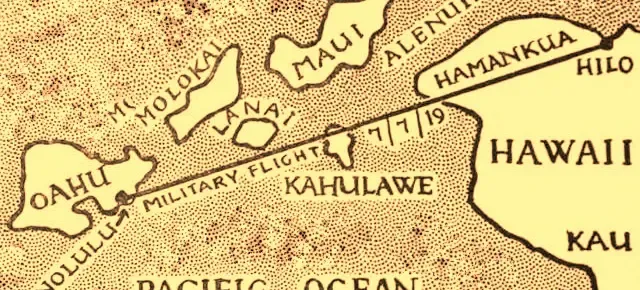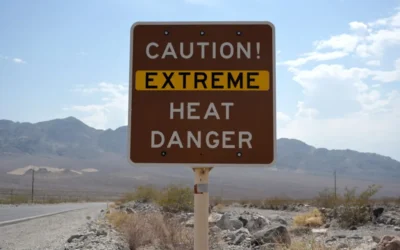Introduction
Hawaii is often viewed as a paradise, beckoning travelers with its stunning beaches, lush landscapes, and vibrant culture. However, lurking beneath this idyllic facade are dangers that linger in the ocean and the environment. Among these, a particular ocean crossing remains shadowed in obscurity, while recent brush fires have posed significant challenges to local communities.
The Ocean Crossing
When people think of dangerous ocean crossings in Hawaii, they often think of the treacherous channel between the islands of Molokai and Lanai or the Ka’iwi Channel that separates Oahu from Molokai. Yet, there exists another perilous route that doesn’t get as much attention—the crossing between the Big Island and the smaller Molokini crater area, which is notorious for high currents and unpredictable weather patterns.
The Geography of Danger
The Molokini Crater is renowned for its stunning marine life and clear waters, making it a popular spot for snorkelers and divers. However, the path to get there from the Big Island, particularly from the town of Kailua-Kona, is fraught with challenges. The body of water known as the Alenuihaha Channel separates the islands and is often misjudged by those unfamiliar with its dynamics.
Hidden Risks
Dangers in the Alenuihaha Channel derive from powerful currents that can easily overpower even experienced boaters. Conditions can shift from calm to dangerous in mere minutes, creating a stormy atmosphere that can surprise unwary travelers.
Recent Incidents
Across the years, there have been numerous accounts of small fishing vessels capsizing, leaving their crews stranded or, in some cases, lost at sea. Alarmingly, local authorities have reported several search and rescue missions launched to locate missing persons who attempted the crossing during especially volatile weather. Despite awareness campaigns, some daredevils still underestimate the channel’s ferocity.
Fire Dangers in Hawaii
While ocean crossings present danger, the dry, volcanic terrain on many of the islands brings its own threats: brush fires. The recent brush fire in Honokaa has highlighted these environmental hazards that often ensnare both locals and visitors.
The Honokaa Brush Fire
In a recent incident, the Hawaii Fire Department was called into action to combat a burgeoning brush fire in Honokaa. Located on the Big Island’s northern region, Honokaa has been experiencing severe drought conditions, making the vegetation highly susceptible to igniting.
Firefighting Efforts
The Hawaii Fire Department deployed multiple units to manage and extinguish the flames. With reports indicating that the fire was threatening residential areas, firefighters made a swift effort to control the situation. Communities rallied to support fire prevention efforts, including defensible space creation around homes and the clearing of dead vegetation.
Closures and Evacuations
As a precaution, Lehua Street in Honokaa was temporarily closed, forming a barrier to ensure that residents remained safe while firefighters worked around the clock. The evacuation of several households was recommended to minimize risks if the fire spread, illustrating the challenges facing both the residents and the firefighting teams.
The Community’s Response
The resilience of the Hawaiian people comes into sharp focus during crises. In the face of the ongoing brush fire in Honokaa, locals came together to create plans for managing such emergencies in the future. Community meetings took place, discussing the need for fire prevention strategies and emergency plans that can be enacted should fires threaten their homes again.
Preventive Measures
To mitigate the risk of future brush fires, residents have initiated programs aimed at educating their community about responsible land management practices. Wildfire safety seminars have been organized, allowing community members to learn proper techniques for maintaining their properties and protecting them from potential fires.
Understanding Climate Change
The alarming frequency and intensity of brush fires across the Hawaiian Islands can largely be attributed to climate change. While these fires may seem like a hub of nature-induced chaos, they also highlight systemic issues concerning weather patterns, drought, and invasive plants that create tinderbox conditions.
The Future of Hawaii’s Ecosystem
Climate change has made Hawaii more vulnerable to extreme weather, leading to increased rainfall followed by prolonged dry periods. Invasive species that are not well adapted to these changing conditions threaten the indigenous flora and fauna, and as a result, the balance of Hawaii’s ecosystem is in jeopardy.
Conclusion
Hawaii is a breathtakingly beautiful paradise, but it also harbors its share of hidden dangers in the ocean and on land. The perilous ocean crossing to the Molokini Crater is a sobering reminder for those who explore its waters while recent brush fires in Honokaa emphasize the environment’s volatility. The combined threats of environmental degradation and unpredictable ocean conditions highlight the importance of understanding and respecting Hawaii’s natural systems.
As the community of Honokaa continues to respond to the recent fires, it serves as a model for resilience and preparedness. Education, awareness, and cooperation will be key components in combatting not just the immediate threats posed by brush fires but also fostering a sustainable future for Hawaii’s unique ecosystems.
In reflecting on these challenges, it becomes clear that adventure in Hawaii must come with a respect for the elements—whether by sea or by earth. While the molten lava flows and stunning vistas enthrall, being aware of nature’s potential for destruction is essential for every resident and visitor alike.







